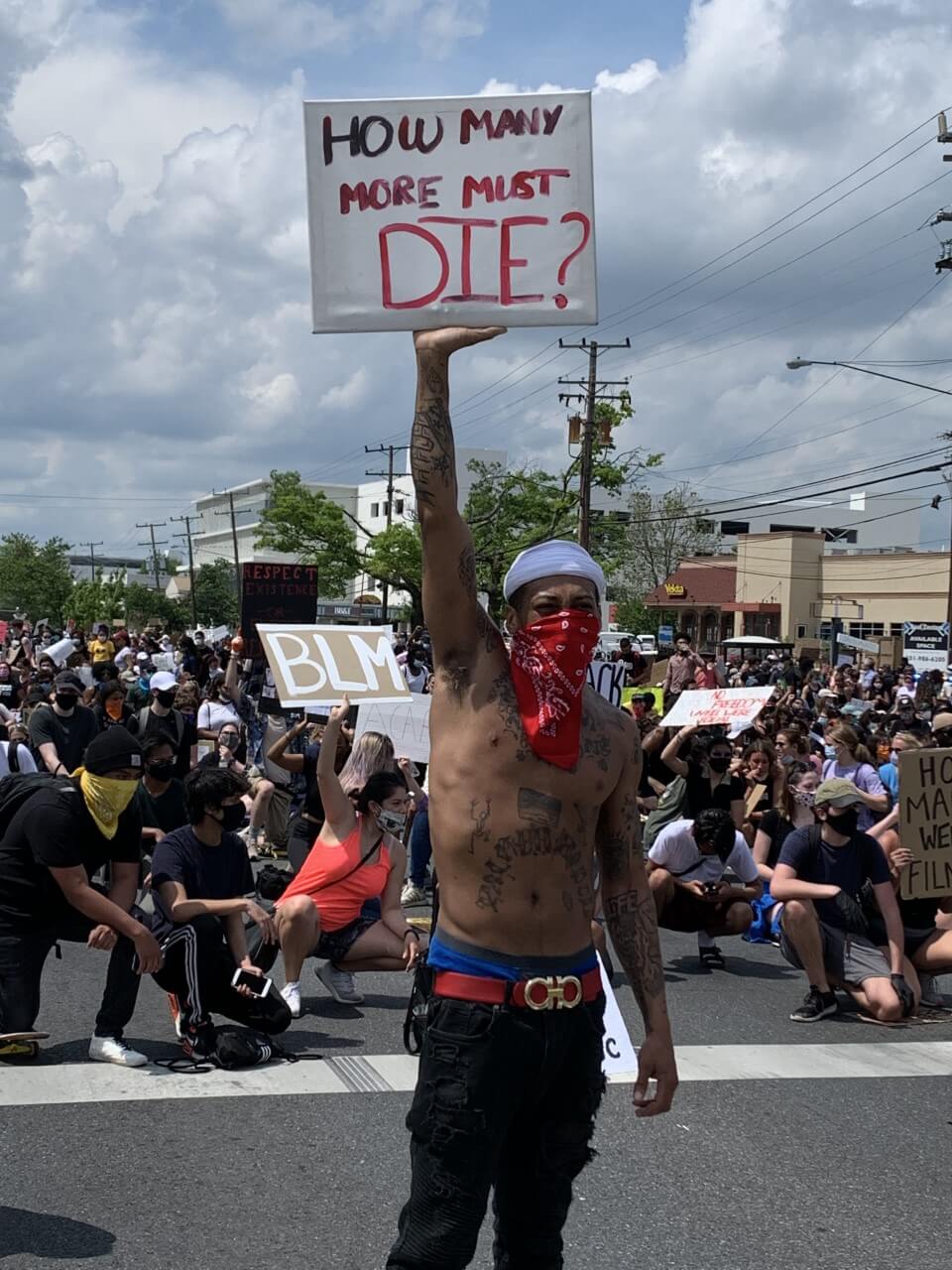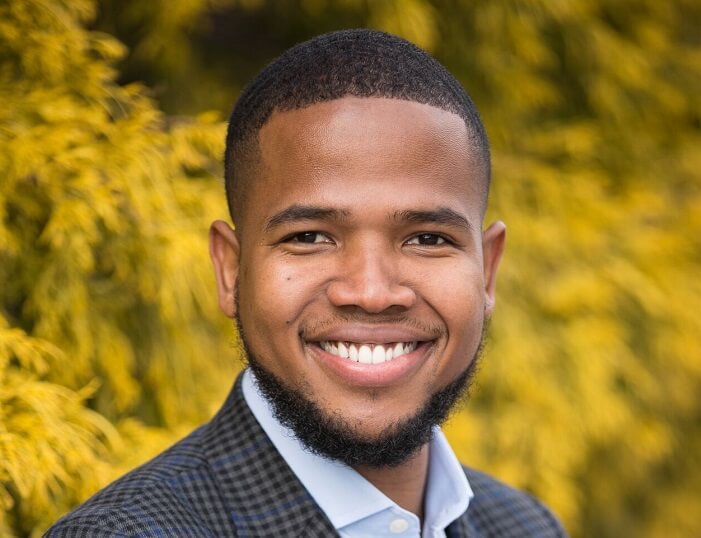
I remember being in the tear-gassed streets of Baltimore in 2015 following the announcement that Freddie Gray had died from injuries sustained while in police custody. The city had finally erupted.
Like many who took to the streets, I was angry. Angry at a system of racialized policing that renders Black lives disposable. And angry at the people in power who couldn’t care enough to enact the policies that our communities have been calling for for decades. For weeks we occupied streets, shouted “Black Lives Matter” and lobbied state legislators on police accountability legislation.
Since then there have been five legislative sessions in Annapolis. Altogether, state legislators deliberated for over 430 days and passed over 4,000 bills; yet not one of those bills squarely addresses the issue of police violence. As a result, the system that supports our brutalization remains intact. And as we are bombarded with the heart wrenching images of Breonna Taylor and George Floyd, Black America is forced once again to have this traumatic conversation about racialized policing. All while Black people continue to die.

Del. Gabriel Acevero (D-Montgomery)
Police violence is not new to American discourse nor are our demands to end it. Before the Black Lives Matter movement sprung up in 2015, and even before the 1992 Los Angeles uprising, leaders such as Ida B. Wells, Dr. Martin Luther King Jr. and Paul Robeson were calling attention to police violence, and the lack of justice for victims and their families.
In fact, Dr. King, during his address at the March on Washington, said that “we can never be satisfied as long as the Negro is the victim of the unspeakable horror of police brutality.” Paul Robeson and the Civil Rights Congress presented a report to the United Nations detailing incidents of police brutality against Black people in America from 1945 to 1951 titled “We Charge Genocide.” All while Black people continue to die.
Fast forward to now, with the availability of social media, the rest of America is witnessing what Black people have been living and saying for decades: “we can’t breathe.” In Maryland, we witnessed the killing of Anton Black, a 19-year-old college student who was beloved by his community in the small town of Greensboro. Anton was a smart, funny, and gifted athlete on the verge of becoming a father. His life, however, was tragically cut short after his encounter with Thomas Webster IV, a former Dover police officer who had been indicted on second degree assault charges in Delaware.
The assault charges against Webster were based on dash cam video that showed him kicking a subdued, unarmed Black man in the head. The Delaware assault charges against Webster were later dismissed and the Dover police department gave him a sizable severance package.
But he was not decertified as a law enforcement officer despite having had many use-of-force reports filed against him while working for Dover police. So Webster went to Maryland and got a job with Greensboro police, despite residents urging the town not to hire him because of his record.
Not long after Greensboro hired him in 2018, Webster chased down and tasered Anton Black at his family home where Black’s mother watched in horror and disbelief as her son struggled and became unresponsive.
After months of protests and demands by the Coalition for Justice for Anton Black, Webster was let go from the Greensboro Police Department, and the Maryland Police Trainings and Standards Commission decertified him in July of 2019. What’s more, the former Greensboro Police Chief who oversaw Webster’s hire, Michael Peyto, pleaded guilty to charges of misconduct for hiding critical background information about Webster such as his multiple use of force reports. Had the systemic reforms we’re calling for been in place, Anton Black would’ve been alive today.
So how can someone like Webster be protected in instances of police brutality while also remaining in law enforcement? The answer is simple: Maryland state law allows it.
Maryland is one of the worst states in the country when it comes to police transparency and accountability laws. In fact, I would argue that Maryland gave America the blueprint on how to protect corrupt and racist cops.
Maryland was the first state to pass a Law Enforcement Officers Bill of Rights (LEOBR) in the early 1970s. That law grants extraordinary privileges to law enforcement officers that ordinary citizens like you and I do not enjoy. Among other things, LEOBR shields police misconduct behind the virtually impenetrable wall of “personnel record privacy” and weakens civilian review boards, ensuring that there is no proper oversight of law enforcement agencies. It also grants officers accused of misconduct special privileges, including a five day “cooling off” period during which the officers are protected from any questioning about possible misconduct.
“Anton’s Law,” named after Anton Black, is legislation I introduced with Senator Jill P. Carter (Baltimore City) that begins to address inadequacies in state law that allow corrupt and racist cops to routinely engage in violence with impunity. It focuses on reforming certain areas of Maryland law such as the Maryland Public Information Act and LEOBR to increase transparency and accountability. Anton’s Law would also establish statewide use of force standards to address the disproportionate use of force against people of color by law enforcement.
Although the bill incorporates much of what our communities have been calling for for some time, it is only a start. We not only must pass Anton’s Law, but expand on it. I appreciate Speaker Adrienne Jones for creating and appointing me to a House workgroup on police accountability. I look forward to our workgroup identifying and recommending comprehensive legislation addressing the scourge that is police brutality. While I’m optimistic about the work ahead, I also recognize that we’ve been here before, and we can’t continue to study what we already know needs to be done. All while Black people continue to die.
Five years after Freddie Gray’s death in Baltimore City, four years after Korryn Gaines’ death in Baltimore County, two years after the death of Anton Black in Greensboro and Robert White in Montgomery County, and a year after Demonte Ward Blake was paralyzed during a traffic-stop scuffle with a Prince George’s cop, what has the General Assembly done to address police violence? The short and infuriating answer: NOT ENOUGH.
It is not enough for statewide leaders to say “Black Lives Matter” and not commit to implementing the solutions that are rooted in the communities most impacted. Those closest to the pain are closest to the solution. If state legislatures govern what is permissible policing, at what point does the Democratic leadership of the General Assembly and Governor Hogan, who acknowledged publicly that Anton Black’s family deserved answers and accountability, commit to passing Anton’s Law?
Incrementalism is not the approach to the immediate problem of police violence. The solution to police violence is neither diversity and inclusion training, nor is it “coffee with a cop.” We cannot expect to train and converse our way out of systemic oppression. Listen to Black, Indigenous and Latinx folks—we’ve formulated and presented solutions to police violence that begin with a change in state law. One of those solutions is Anton’s Law.
Five years after Freddie Gray’s death it angers me to read the painful words of loss expressed by Fredericka Gray, Freddie’s twin sister. It angers me to listen to LaToya Holley, Anton Black’s sister, who every year treks from the Eastern Shore to Annapolis to appeal to state legislators to pass Anton’s Law.
Anton’s mother is still struggling to move on after his death, and his father is still asking why charges weren’t brought. They deserve justice and accountability. What we don’t need is pandering and performative wokeness.
We all deserve an end to police violence. Passing Anton’s Law and repealing the Law Enforcement Officers Bill of Rights would be a great first step. Black people have shouldered the burden of police violence for far too long. I call on the General Assembly and Governor Hogan to pass and enact legislation that will build a just and equitable Maryland where Black pain is no longer the prerequisite for progress.
— GABRIEL ACEVERO
The writer, a Democrat, represents Montgomery County’s 39th District in the Maryland House of Delegates. He is the 2nd Vice Chair of the Legislative Black Caucus of Maryland and the lead sponsor of Anton’s Law.




 Creative Commons Attribution
Creative Commons Attribution